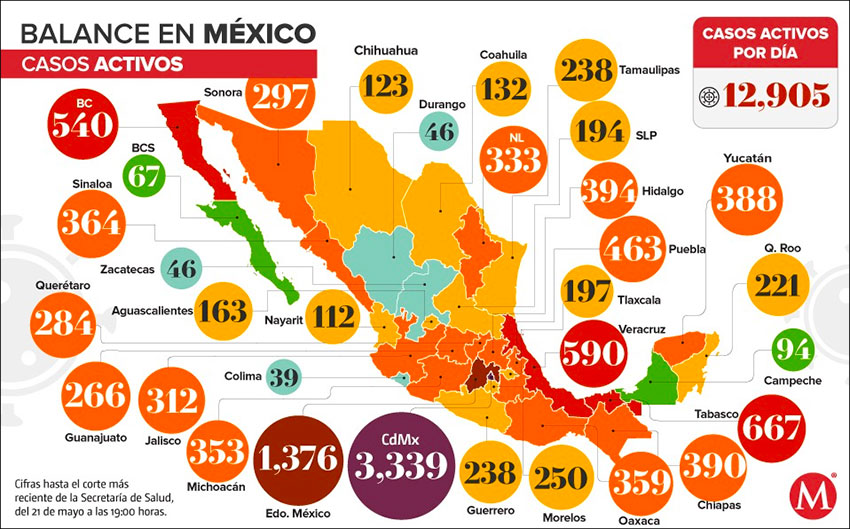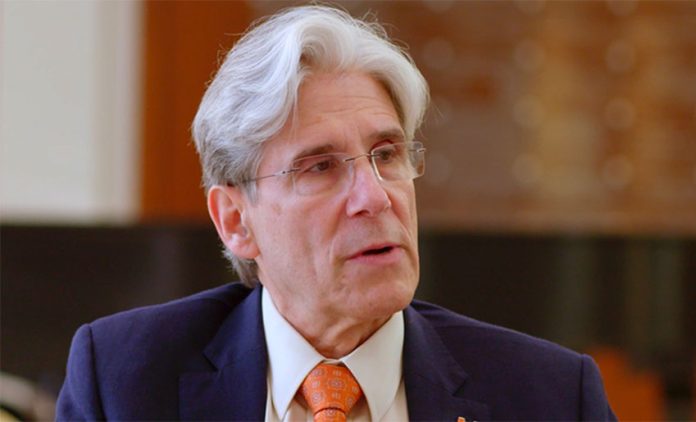Reopening the economy without widespread Covid-19 testing is “irresponsible” and will cause Mexico to “lose control” of the pandemic for a second time, says a former federal health minister.
In an interview with the newspaper El Universal, Julio Frenk Mora, health minister in the 2000-2006 government led by former president Vicente Fox, said that testing is essential in order to prevent a large second wave of coronavirus infections.
“So that people can leave their homes, testing is fundamental because if we don’t test, we’ll lose control of [the pandemic] again and we’ll have to ask everyone to stay at home again and that will be disastrous,” he said.
“It’s irresponsible to say that the economy can be opened without testing; what they [the federal government] are almost guaranteeing is that we’ll have to close it again,” Frenk added.
Just under 202,000 people have been tested for coronavirus in Mexico, according to data presented by the Health Ministry on Thursday night, a figure that equates to about 1,600 tests per one million inhabitants. Mexico’s testing rate is about 40 times lower than Spain’s, 25 times lower than that of the United States and 14 times lower than the rate in Chile.
Despite the growing pandemic (Mexico had recorded almost 60,000 Covid-19 cases and 6,510 deaths as of Thursday) and the low testing rate, the federal government is forging ahead with plans to begin reopening the economy on a state by state basis starting June 1.
Asked whether Mexico is ready to start taking steps toward the “new normal” at the start of next month, Frenk responded:
“The country is very heterogeneous, there has not been one sole pandemic but rather many epidemics in different parts of the country. … There are parts of the country that might be ready to open but in general, [Mexico is] definitely not. … Even in places that are ready [to reopen] because the number of cases has gone down, testing is fundamental.”
The former health minister, a medical doctor and public health academic who is currently president of the University of Miami, said the federal government’s “unwillingness” to test more widely – only people with serious Covid-19 symptoms have been tested to date – is “inexplicable” and has prevented it from fully understanding the size of the pandemic.
“If we don’t know the magnitude of the problem, thinking of an optimal solution is difficult,” he said.
“I don’t know if we know something in Mexico that is unknown in the rest of the world because all other countries have insisted that the key to understanding and controlling the pandemic and reopening the economy in a safe way is to do more tests. Mexico is the only country that’s not doing it,” Frenk said.

He also said that “it’s a mistake to suggest that we’ve already passed the worst” of the pandemic. “The truth is that we don’t really know when [the peak] will arrive.”
Frenk charged that the government failed to respond in a timely manner to the pandemic even though the national social distancing initiative commenced when Mexico had recorded just 316 coronavirus cases and two deaths and a health emergency declaration that suspended all nonessential activities was issued on March 30 when the country had just over 1,000 cases and 29 people had lost their lives to Covid-19.
“An early window [of opportunity] was unfortunately lost,” he said.
“All the countries that have done well [in controlling the pandemic] reacted on time and those that haven’t done well trivialized and played down the emergency. One characteristic shared by many of the latter is that they have populist governments: Russia, Turkey, Italy, the United States, Brazil and Mexico. A trait of populism is to undervalue the opinion of experts,” Frenk said.
“This virus is very difficult to control because it’s very contagious and people without symptoms, or mild symptoms, can transmit the disease and cause it to grow exponentially. In countries that have done well, they tested quickly.”
Frenk rejected President López Obrador’s claim in late April that coronavirus had been “controlled” in Mexico and his assertion that the government’s management of the crisis has been a “success.”
Even though official statistics “undoubtedly” underestimate the size of the pandemic, they show that it is growing “exponentially,” Frenk said.
“The health emergency hasn’t ended; I think that saying that the [management of the pandemic] is a ‘success’ is premature.”
Source: El Universal (sp)
